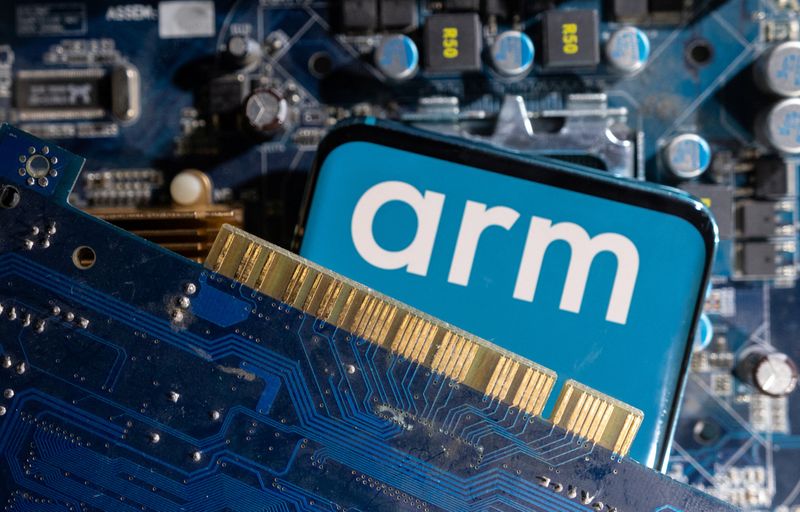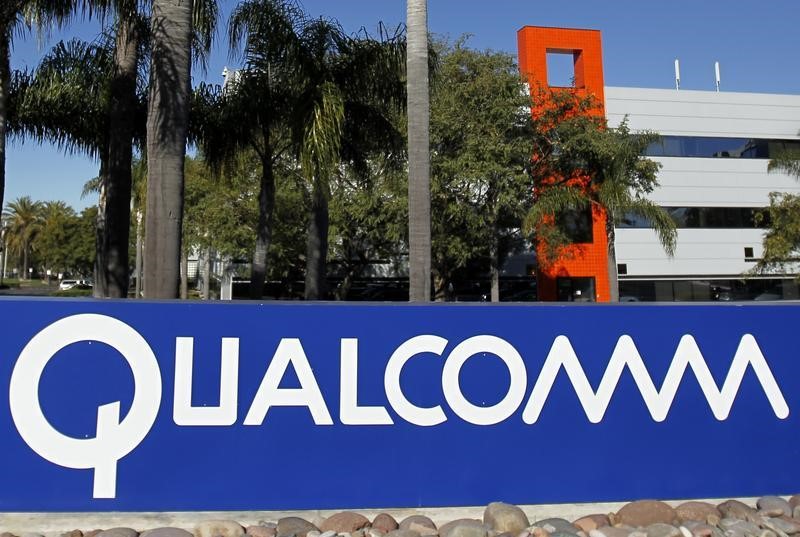(Reuters) – Chip firm Arm is canceling an architectural licensing deal that allows Qualcomm (NASDAQ:) to use its intellectual property to design chips, a person familiar with the matter said, amid an ongoing legal battle between the two companies.
Qualcomm closed down about 4% on Wednesday, while Arm Holdings (NASDAQ:) fell about 6.6%
Arm has given Qualcomm a mandatory 60-day notice of revocation of a license that allows Qualcomm to design its own chips based on Arm’s computer architecture, said the person, who requested anonymity.
Bloomberg News was the first to report the development.
Britain’s Arm, majority owned by Japan’s SoftBank (TYO:) Group, sued Qualcomm in 2022 for failing to negotiate a new license after acquiring Nuvia.
Arm had previously said that the design Qualcomm was planning for Microsoft’s (NASDAQ:) Copilot+ laptops was a direct technical descendant of the Nuvia chip and that it had revoked the license for these chips.
“This is more of the same from ARM: more baseless threats designed to strengthen a legacy partner, disrupt our performance CPUs, and increase royalty rates regardless of the broad rights under our architecture license,” a Qualcomm spokesperson said in an email. statement.
“With a December trial fast approaching, Arm’s desperate move appears to be an attempt to disrupt the legal process, and his claim for termination is completely without merit. We are confident that Qualcomm’s rights under its agreement with Arm will be vindicated. behavior will not be tolerated.”
The legal battle between the two tech giants is expected to begin in December in federal court in Delaware.
An Arm victory in the lawsuit could force Qualcomm and its 20 or so partners, including Microsoft, to stop shipping the new laptops. It would also essentially undo one of Qualcomm’s biggest strategic acquisitions in recent years.
“Following Qualcomm’s repeated material violations of Arm’s license agreement, Arm has no choice but to take formal action requiring Qualcomm to cure the violation or terminate the agreement,” Arm said in an emailed statement.
“Arm is fully prepared for the trial in December and remains confident that the court will find in Arm’s favor.”

Despite the public battle between the two companies that depend on each other for sales and profits, some investors and analysts believe they will reach a settlement well before trial.
“If the 60-day cancellation warning were enforced, Qualcomm could in theory be severely limited in terms of what it could sell, given the importance of ARM architectures to its chipsets, and ARM would lose some royalty revenue .’ says Russ Mould, investment director at AJ Bell.


